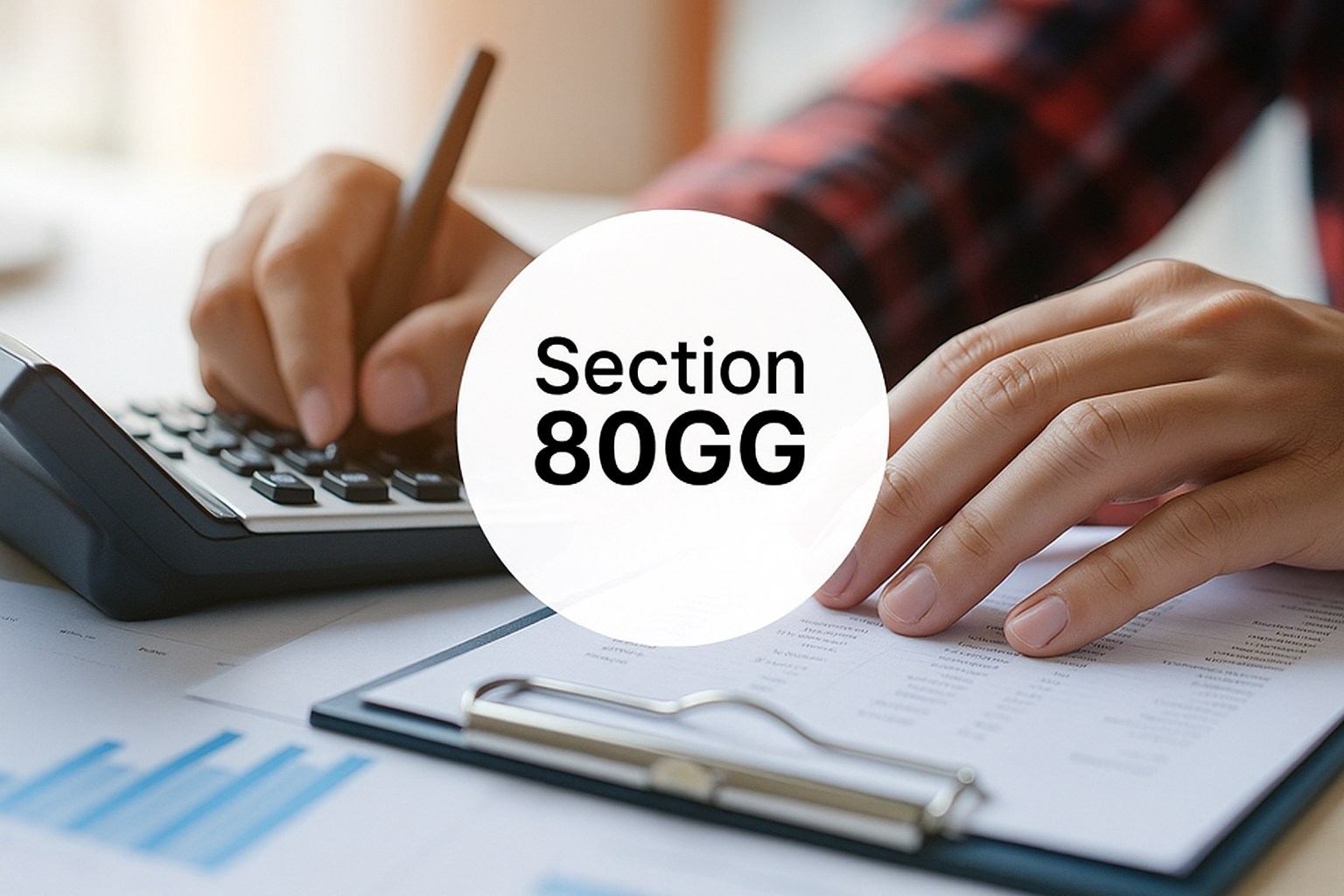Paying house rent without receiving HRA (House Rent Allowance) from your employer can still give you tax benefits under Section 80GG of the Income Tax Act, 1961. This section allows a deduction for rent paid, even if your salary structure does not include HRA. It is highly useful for self-employed individuals, salaried employees without HRA, and those living in rented accommodation.
What is Section 80GG?
Section 80GG provides tax relief to individuals who pay rent but do not get HRA as part of their salary. It helps reduce taxable income by allowing a deduction for rent paid, subject to certain conditions.
This deduction is available under Chapter VI-A of the Income Tax Act and applies to both salaried and self-employed taxpayers.
Who Can Claim Section 80GG? (Eligibility Criteria)
To claim benefits under Section 80GG, the following conditions must be met:
- You must be an individual or Hindu Undivided Family (HUF).
- You should be living in a rented house and paying rent.
- You must not receive HRA from your employer.
- You, your spouse, or minor child should not own any residential property where you currently live.
- If you own a house in another location, you cannot claim it as self-occupied while claiming 80GG.
How Much Deduction is Allowed Under Section 80GG?
The deduction is the least of the following three amounts (as per CBDT guidelines):
- ₹5,000 per month (₹60,000 annually) – CBDT Notification, FY 2016-17 onwards.
- 25% of total income (excluding long-term capital gains, short-term capital gains under Section 111A, and deductions under Section 80C to 80U).
- Actual rent paid minus 10% of total income.
Example:
- Total Income: ₹6,00,000
- Rent Paid: ₹10,000 per month (₹1,20,000 annually)
- 10% of Income = ₹60,000
- Rent Paid – 10% of Income = ₹60,000
- 25% of Income = ₹1,50,000
- Fixed Limit = ₹60,000
Deduction Allowed = Least of the three = ₹60,000
Also Check: How to Calculate House Rent Allowance Online
How to Claim Section 80GG Deduction?
To claim this deduction, you must:
- Fill Form 10BA – A declaration confirming that you live in rented accommodation and do not claim HRA.
- Submit landlord details, including PAN of landlord if rent exceeds ₹1 lakh annually.
- Keep rent receipts and rental agreement as proof.
- Claim deduction while filing Income Tax Return (ITR).
Key Points to Remember
- The maximum deduction allowed is ₹60,000 per year.
- Deduction is not available if you or your family own residential property in the city where you live.
- Form 10BA must be furnished online or with your ITR.
- Rent paid to parents can also be claimed if proper rent agreement and receipts are maintained.
- Deduction applies to both salaried and self-employed taxpayers.
Also Read: What is HRA Exemption?



